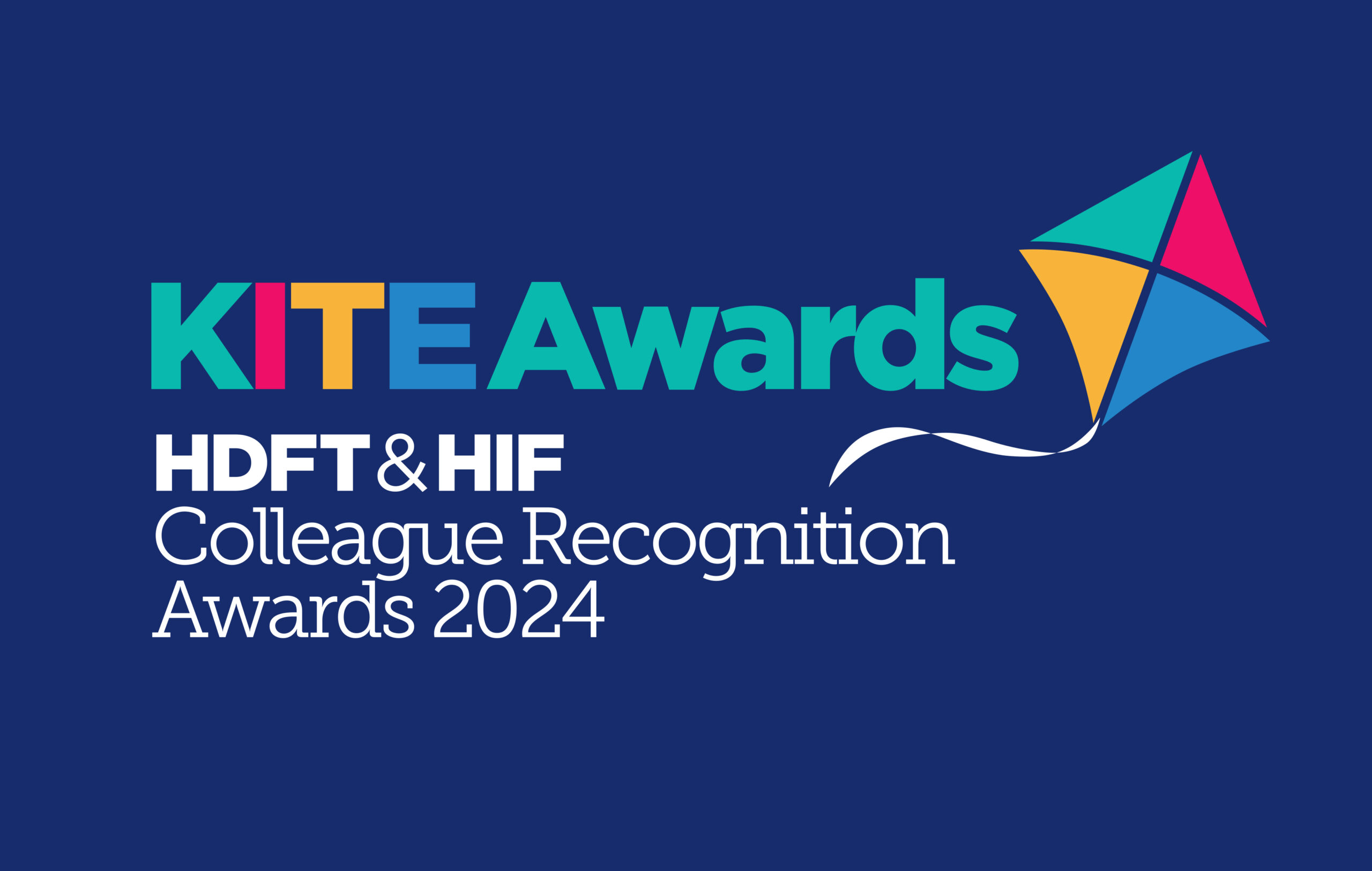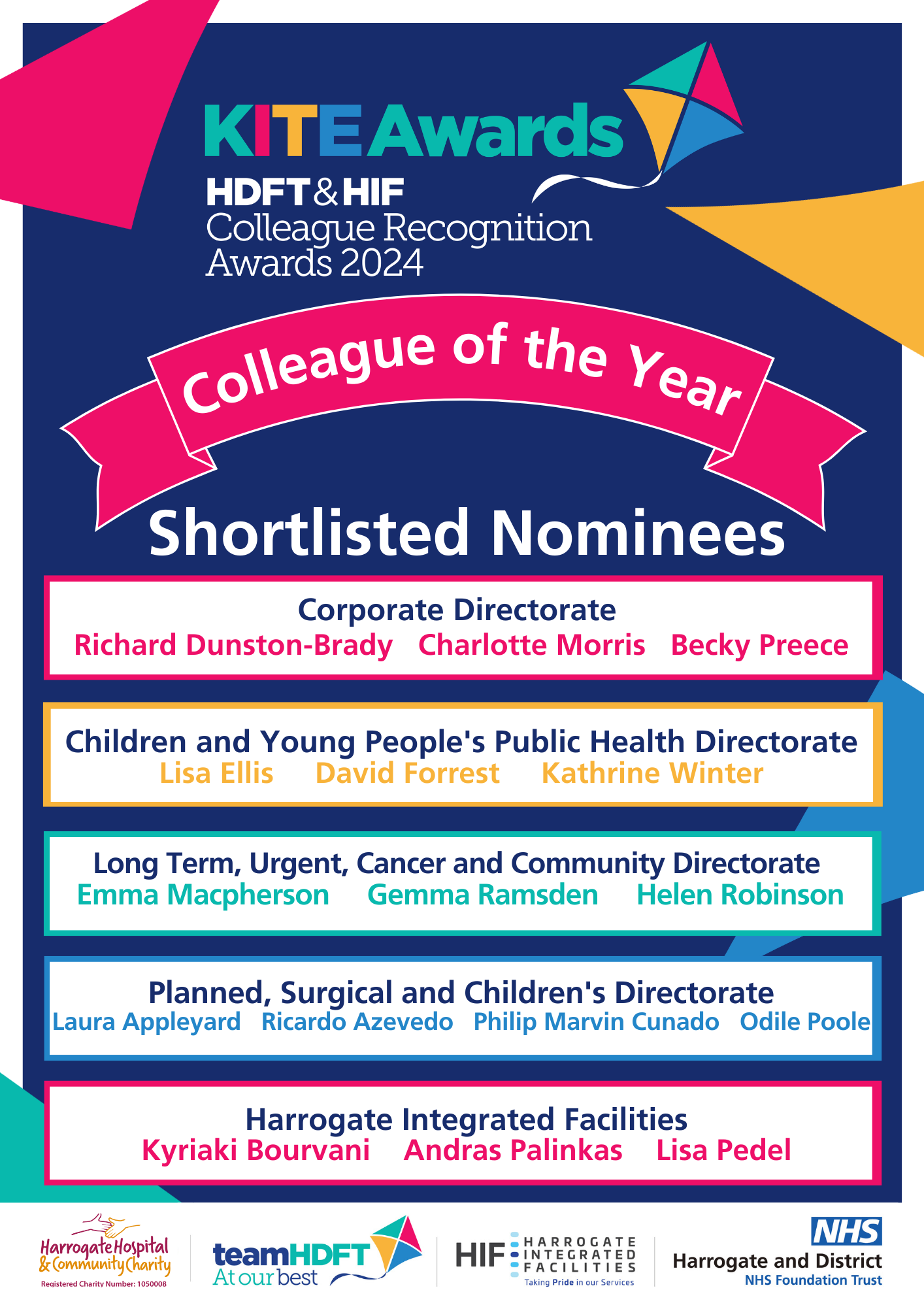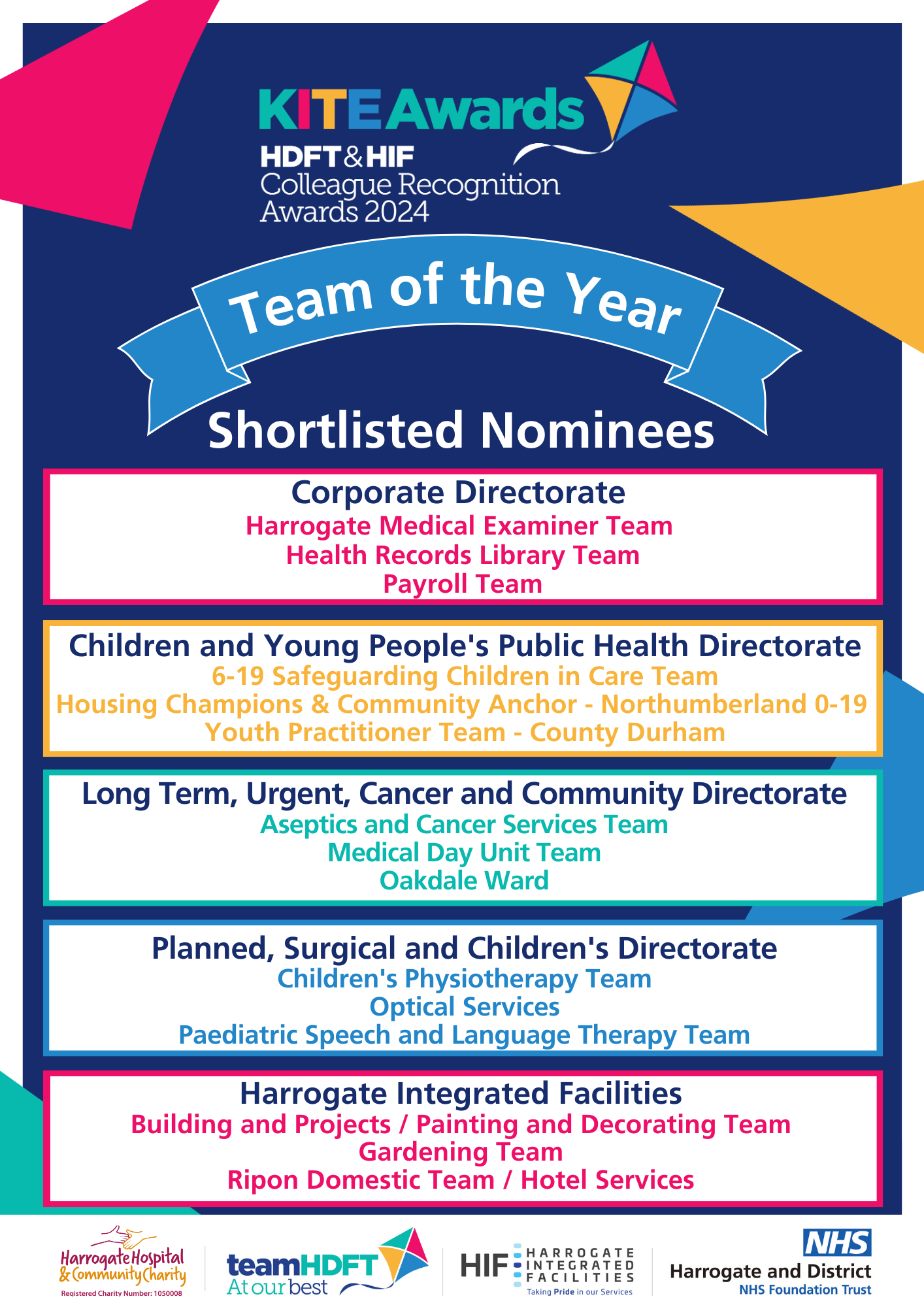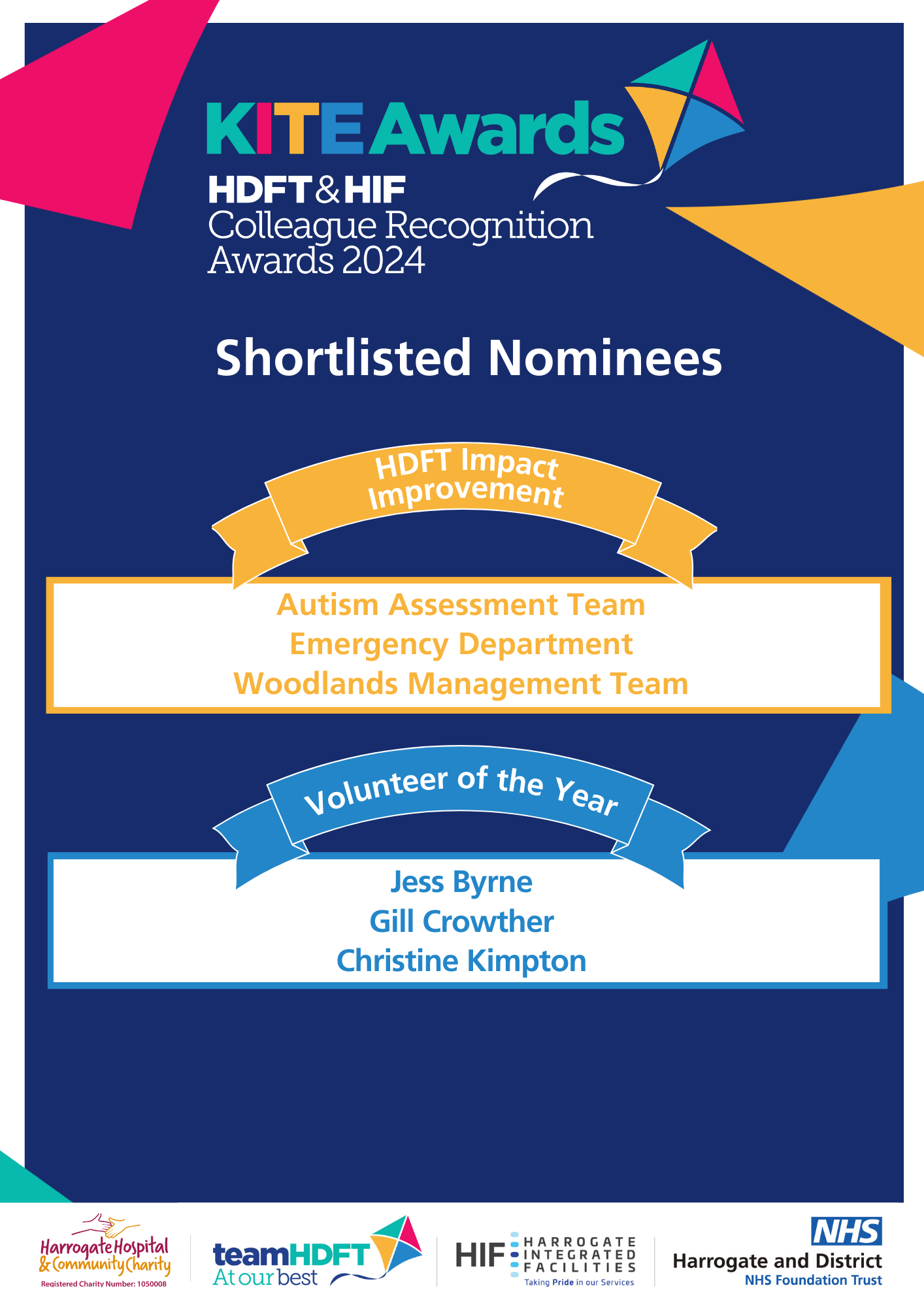CONGRATULATIONS TO EVERYONE WHO WAS NOMINATED AND OUR WINNERS ARE ARE…
Our 2024 KITE Colleague Recognition Awards took place at the Radisson Blu Hotel Durham on Friday 7 March 2025 with over 200 guests attending the evening to recognise our colleagues achievements.
We also celebrated our Long Service Award winners who had achieved 25, 30, 35, 40 or 50 years NHS service – a combined total of 5,875 years of hard work, dedication and outstanding care between them!
Finally, our Making a Difference Awards of the Quarter acknowledged those people who embody our KITE values of kindness, integrity, teamwork and equality.
Well done to all our nominees and winners – HDFT just wouldn’t be the same without you and your amazing dedication to the NHS and the people in our community.
CLICK HERE TO SEE OUR KITE AWARDS 2024 WINNERS
Our KITE Award categories
Directorate awards (Colleague):
These awards (one for each directorate) are for any colleague in these directorates who provides exceptionally high quality services to patients/services users and/or colleagues, or has demonstrated exceptional improvements to a service with clear benefits for others. Judges will be looking for someone who:
- Is highly motivated and enthusiastic.
- Has made a significant difference to patient/service user care or colleagues over the past year.
- Embodies the Trust’s values – kindness, integrity, teamwork and equality.
Anyone in each of the directorates can be nominated.
Overall Colleague of the Year Award
This award, which is decided by the Chairs of HDFT and HIF, considers the winners of the ‘Directorate Colleague of the Year Awards’, and is awarded to the individual who best embodies the qualities required to be considered ‘Overall Colleague of the Year’.
Directorate awards (Leadership)
These awards (one for each directorate) are for any leader in these directorates who consistently demonstrates the compassionate and inclusive behaviour we want all our leaders to show towards colleagues.
The judges will be looking for:
- A leader who is inclusive, promotes equality and diversity and challenges discrimination.
- A leader who is kind and treats people with compassion, courtesy and respect.
- A leader who aims for the highest standards and seeks to continually improve and harness the ingenuity of their team members.
- A leader who can be trusted to do what they promise.
- A leader who collaborates, forming effective partnerships to achieve common goals.
- A leader who celebrates success and supports their team members to be the best they can be.
Directorate awards (Teamwork)
These awards (one for each directorate) are for any teams in these directorates who consistently deliver a high quality and efficient service, with a clear focus on the needs of others, be that patient/service users or colleagues. Perhaps they have implemented change and/or improved their service, and this can be evidenced.
The judges will be looking for:
- Effective team working.
- The team working together to support personal and professional development of members.
- Improvement work that has taken place on behalf of patients/service users.
Evidence of high quality, safe services.
Overall Team of the Year Award
This award, which is decided by the CEO of HDFT, considers the winners of the ‘Directorate Team of the Year Awards’, and is awarded to the team which best embodies the qualities required to be considered ‘Overall Team of the Year’.
Quality of Care Award
This award is for an individual or a team that has made a significant contribution to a measurable improvement to patient safety and experience.
The judges will be looking for:
- Evidence of a clearly defined project/piece of work.
- A clear explanation of how and why the need for improvement was necessary, including stakeholder engagement.
- Clear patient or service user benefit from the piece of work carried out.
- Evaluation (statistics or feedback for example) of the difference that’s been made for patients or service users.
Innovation and Research Award
This award recognises excellent examples of innovation, research and improvement which has had clear benefits for patients, service users or colleagues. Judges are looking for:
- A well-planned and implemented transformation of a service.
- Evidence that the transformation implemented was the right thing to do.
- Feedback from colleagues in the service or who work with the service, or from patients/service users
 HDFT Impact Improvement Award
HDFT Impact Improvement Award
This award recognises examples of continuous improvement which have delivered benefits for patients, service users or colleagues. The example should demonstrate consistent application of the HDFT Impact continuous improvement methods over time, in particular scientific problem solving and use of data.
Judges are looking for
• Scientific, data led problem solving – what was the problem, how was it measured, what was the root cause and biggest contributor, what countermeasures were tried to improve, what were the outcomes.
• A quantifiable measure of the problem and how it has improved.
• Consistent application of continuous improvement methods over time
• How colleagues, patients, service users were engaged and involved in the improvement.
• What you learnt and what you would do differently next time?
• Feedback from colleagues in the service or who work with the service, or from patients/service users.
Volunteer of the Year Award
This award is for an individual or team of volunteers who very generously give up their free time to support colleagues across the Trust. They work tirelessly with lots of enthusiasm and energy to provide much needed support for staff, patients/service users and visitors. The judges will be looking for evidence of:
- What they do and how they do it.
- The impact of what they do on the people and service they support.
- How they have demonstrated a positive attitude, regularly contributing to the team they’re part of.





